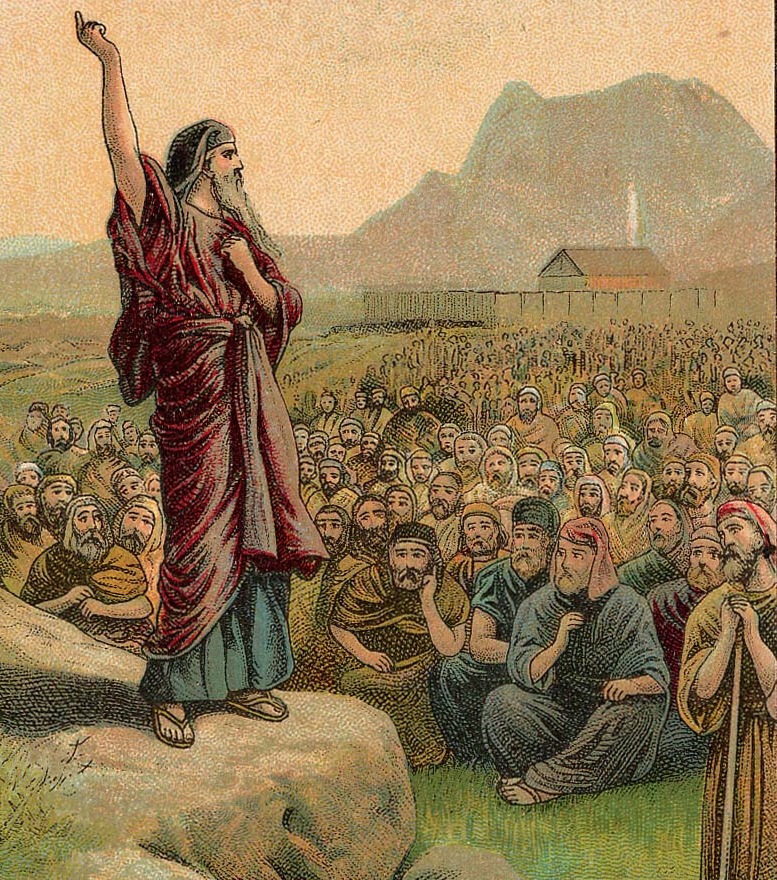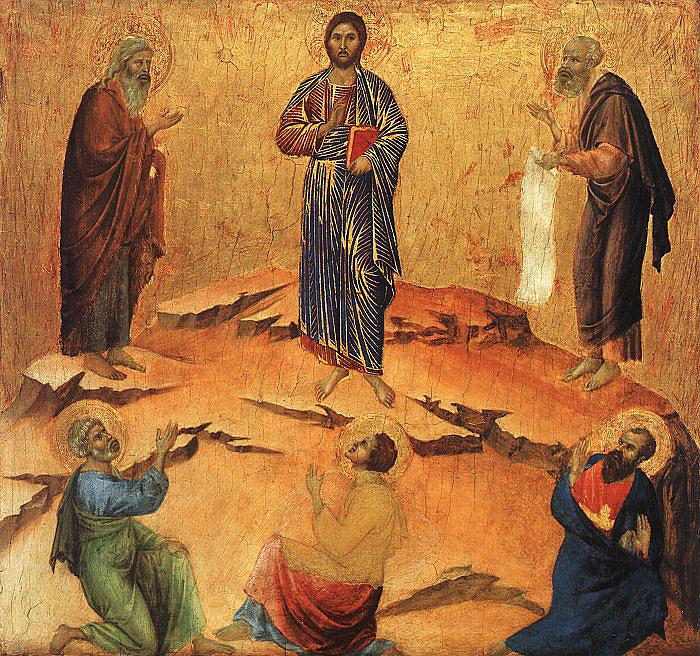by Lois Tverberg
Afterward Moses and Aaron went to Pharaoh and said, “This is what the LORD, the God of Israel, says: `Let my people go, so that they may hold a festival to me in the desert.'” Pharaoh said, “Who is the LORD, that I should obey him and let Israel go? I do not know the LORD and I will not let Israel go.” Then they said, “The God of the Hebrews has met with us. Now let us take a three-day journey into the desert to offer sacrifices to the LORD our God, or he may strike us with plagues or with the sword.” Exodus 5:1-3
During Moses’ encounters with Pharaoh, God told him to tell Pharaoh that the Israelites needed to take a three-day journey into the desert to worship him (Ex. 3:18, 5:3, 8:27). This is confusing because it sounds as if they are asking for a long weekend off, and then they’ll come back. But in fact, in no place does Moses say that they will return afterward.
Another suggestion is that the phrase “three-day journey” is actually not about the length of time they plan to be away, but the distance they need to travel from Egypt before they worship God. In the Scripture, measuring distance in “days of journey” was common. (See Gen 31:33, Num 10:33, Deut 11:1, 1Ki 19:4, etc.) Moses was likely saying that people must be far away from the false”gods” and oppression of Egypt before they worshipped God, or their awesome God might release plagues and destruction. The Egyptians were the ones in danger!
It seems that Pharaoh was undaunted by Moses’ warnings about the power of his God, and he refused to let the Israelites go a safe distance from Egypt. It is easy to imagine that as this holy God approached his people, getting nearer and nearer, the plagues on Egypt became increasingly worse. First the river ran red from some distant danger sweeping downstream, then the insects started swarming, then the animals started dying, then the sky blackened with hail and locusts and utter darkness as this awesome God approached Egypt.
Finally, when the Israelites went ahead and sacrificed a lamb and worshipped their God right in the midst of Egypt, his full power was unleashed on the Egyptians and destruction poured out on the oppressors of his people. Because Pharaoh would not release Israel to worship their holy God, he came to punish their captors and release them himself.
Photo: John Martin

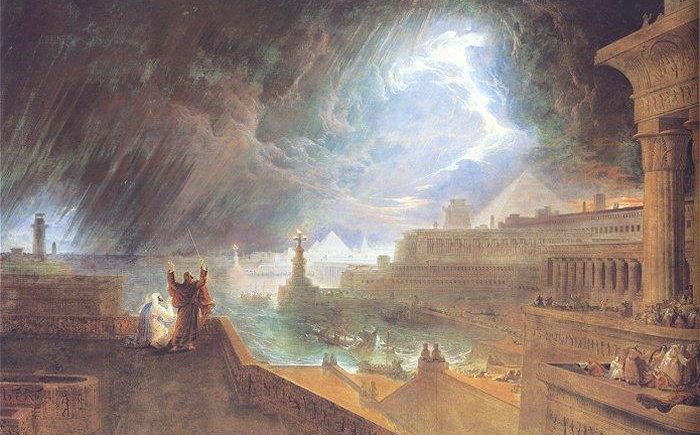
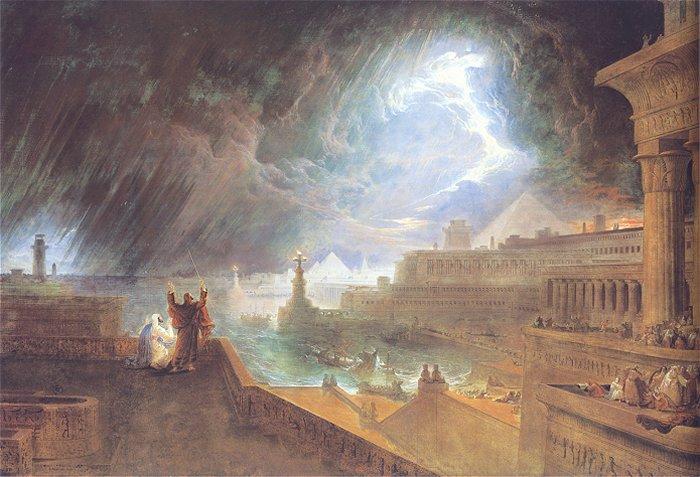
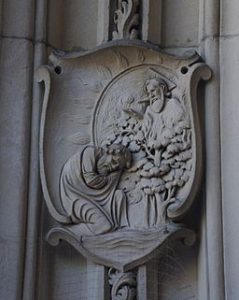 him to somehow go convince Pharaoh to release the Israelites from slavery all on his own. What an impossibility that a stuttering 80-year old shepherd could do such a thing! Perhaps he imagined that God was telling him to raise up a rebellion who could demand release from Pharaoh. In his younger days when he was passionate for justice, maybe he could have done it, but not now. Surely God couldn’t use him.
him to somehow go convince Pharaoh to release the Israelites from slavery all on his own. What an impossibility that a stuttering 80-year old shepherd could do such a thing! Perhaps he imagined that God was telling him to raise up a rebellion who could demand release from Pharaoh. In his younger days when he was passionate for justice, maybe he could have done it, but not now. Surely God couldn’t use him.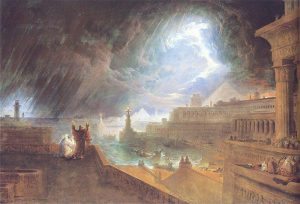 They meant that this was the sign of a power far, far greater than they could conjure up. Often God’s power or intervention is described metaphorically by using words like God’s “arm” or God’s “hand.” God’s “finger” also refers to his power or intervention. God is so mighty that all he had to use was his littlest finger to defeat the powers of the magicians in Egypt!
They meant that this was the sign of a power far, far greater than they could conjure up. Often God’s power or intervention is described metaphorically by using words like God’s “arm” or God’s “hand.” God’s “finger” also refers to his power or intervention. God is so mighty that all he had to use was his littlest finger to defeat the powers of the magicians in Egypt!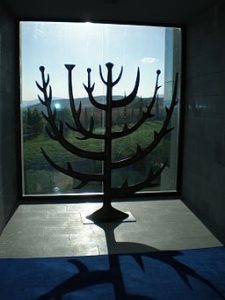 When God spoke to Moses in the burning bush and Moses asked his name, God revealed many things about his nature through what he said. His answer likely was not what Moses expected, because God is so utterly unlike the gods that Moses had encountered. Other gods had names that were nouns, like “Molech” (actually Melech, meaning “King”) or “Baal,” meaning “Master,” or perhaps descriptive names like “Lucifer” meaning, “Light Bearer,” or “Baal Zebul” meaning “Exalted Lord.”
When God spoke to Moses in the burning bush and Moses asked his name, God revealed many things about his nature through what he said. His answer likely was not what Moses expected, because God is so utterly unlike the gods that Moses had encountered. Other gods had names that were nouns, like “Molech” (actually Melech, meaning “King”) or “Baal,” meaning “Master,” or perhaps descriptive names like “Lucifer” meaning, “Light Bearer,” or “Baal Zebul” meaning “Exalted Lord.”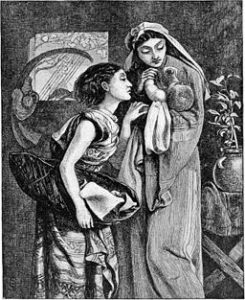 In the first few chapters of Exodus, women play a major role. Pharaoh tells the midwives Shiprah and Puah to kill the newborn boys but let the girls live. His assumption was that while men posed a threat, women would be easily assimilated into Egyptian culture and exploited as domestic and sexual slaves. We also see hints of this in Abraham’s time, when he tells Sarah that the Egyptians would kill him and take her. (Genesis 12:12)
In the first few chapters of Exodus, women play a major role. Pharaoh tells the midwives Shiprah and Puah to kill the newborn boys but let the girls live. His assumption was that while men posed a threat, women would be easily assimilated into Egyptian culture and exploited as domestic and sexual slaves. We also see hints of this in Abraham’s time, when he tells Sarah that the Egyptians would kill him and take her. (Genesis 12:12) In this story we find the Israelites “grumbling” to Moses and Aaron about their present circumstances. The Hebrew meaning behind this translation conveys a much stronger picture, that of a riotous mob wanting to kill their leaders. I find myself quickly judging the Israelites, thinking that since they had just been brought out of the land of slavery, how could they be complaining already? After all, they had seen the mighty hand of God on the night of Passover, they had experienced the parting of the waters of the Red Sea, manna appeared with the dawn, quail fell from the sky, and they had benefited from many other miracles. How could they be so ungrateful as to be complaining about thirst?
In this story we find the Israelites “grumbling” to Moses and Aaron about their present circumstances. The Hebrew meaning behind this translation conveys a much stronger picture, that of a riotous mob wanting to kill their leaders. I find myself quickly judging the Israelites, thinking that since they had just been brought out of the land of slavery, how could they be complaining already? After all, they had seen the mighty hand of God on the night of Passover, they had experienced the parting of the waters of the Red Sea, manna appeared with the dawn, quail fell from the sky, and they had benefited from many other miracles. How could they be so ungrateful as to be complaining about thirst?